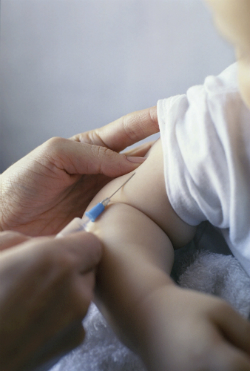Q: Is a vaccine safer than getting the real disease?

A: Absolutely. And there are two very important reasons why this is true.
First, vaccines—which help children and adults build immunity (protection) against dangerous and often life-threatening diseases—do not contain live disease organism. If they did, there would be a great risk for people being vaccinated to develop the diseases instead of just becoming protected against them. So if vaccines don’t contain the live disease, what is actually in them? A vaccine is manufactured using a weakened or dead form of the virus or bacteria – and often only contains bits and pieces of the virus of bacteria that causes the disease—which allows the body to recognize the pathogen but not get sick from it. As our body recognizes the pathogen, it starts to form antibodies that can fight the disease if the person should ever be exposed to it later on in life.
The second reason why vaccines are safer than the actual disease is that a vaccine provides protection against a disease without having to contract the disease and get symptoms from the disease with potential complications. Some parents mistakenly believe that many childhood diseases pose no significant threat to their child’s health. But every time there is an outbreak of a vaccine-preventable disease—whether it’s localized in one community or spread across a region—there are children who become seriously ill. Measles, for example, is a highly contagious disease, which can lead to ear infections, lung infections and inflammation of the brain. For every 1,000 children who have measles, there is the risk of one child developing inflammation of the brain, which can cause permanent brain damage. Overall one in 3,000 children who catch measles may die from it.1 When made aware of such statistics, most parents can agree that immunization through vaccination is a much safer route.
Dr. Caroline Quach
- Division of Infectious Diseases, Montreal Children’s Hospital – McGill University Health Centre
- Vice-Chair, National Advisory Committee on Immunization (NACI)
Related links
1. http://www.msss.gouv.qc.ca/en/sujets/prob_sante/measles/measles.php


